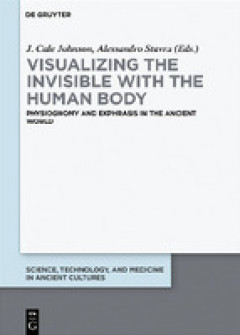Ditapis dengan

E-book How Modern Science Came into the World Four Civilizations, One 17th-C…
Once upon a time 'The Scientific Revolution of the 17th century' was an innovative concept that inspired a stimulating narrative of how modern science came into the world. Half a century later, what we now know as 'the master narrative' serves rather as a strait-jacket — so often events and contexts just fail to fit in. No attempt has been made so far to replace the master narrative. H. Flori…
- Edisi
- -
- ISBN/ISSN
- 9781040777381
- Deskripsi Fisik
- 824 hlmn
- Judul Seri
- -
- No. Panggil
- 509.532 COH h

E-book Visualizing The Invisible with The Human Body
Physiognomy and ekphrasis are two of the most important modes of description in antiquity and represent the necessary precursors of scientific description. The primary way of divining the characteristics and fate of an individual, whether inborn or acquired, was to observe the patient’s external characteristics and behaviour. This volume focuses initially on two types of descriptive literatur…
- Edisi
- -
- ISBN/ISSN
- 9783110642681
- Deskripsi Fisik
- 509 halaman
- Judul Seri
- -
- No. Panggil
- 138 JOH v

E-Book Astrophysics, Astronomy and Space Sciences in the History of the Max P…
This book provides the first comprehensive historical account of the evolution of scientific traditions in astronomy, astrophysics, and the space sciences within the Max Planck Society. Structured with in-depth archival research, interviews with protagonists, unpublished photographs, and an extensive bibliography, it follows a unique history: from the post-war relaunch of physical sciences in W…
- Edisi
- -
- ISBN/ISSN
- 9789004529137
- Deskripsi Fisik
- 745 halaman
- Judul Seri
- -
- No. Panggil
- 523.01 BON a
 Karya Umum
Karya Umum  Filsafat
Filsafat  Agama
Agama  Ilmu-ilmu Sosial
Ilmu-ilmu Sosial  Bahasa
Bahasa  Ilmu-ilmu Murni
Ilmu-ilmu Murni  Ilmu-ilmu Terapan
Ilmu-ilmu Terapan  Kesenian, Hiburan, dan Olahraga
Kesenian, Hiburan, dan Olahraga  Kesusastraan
Kesusastraan  Geografi dan Sejarah
Geografi dan Sejarah